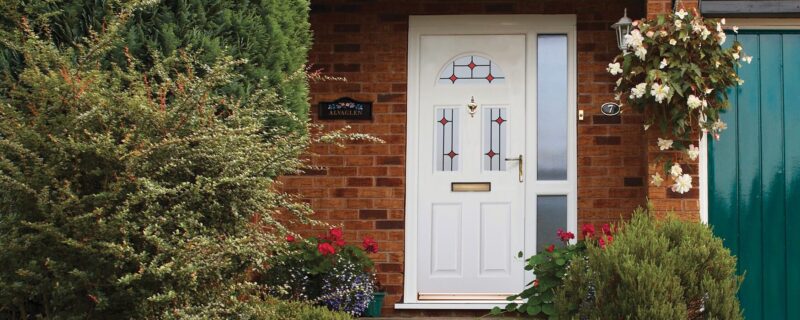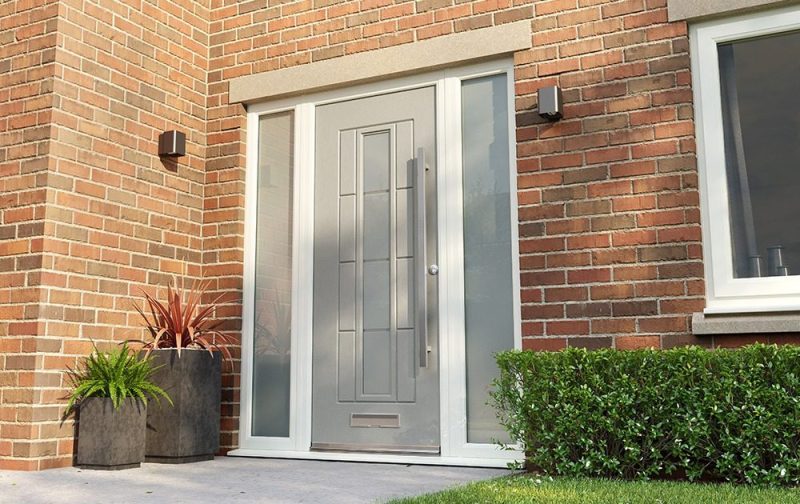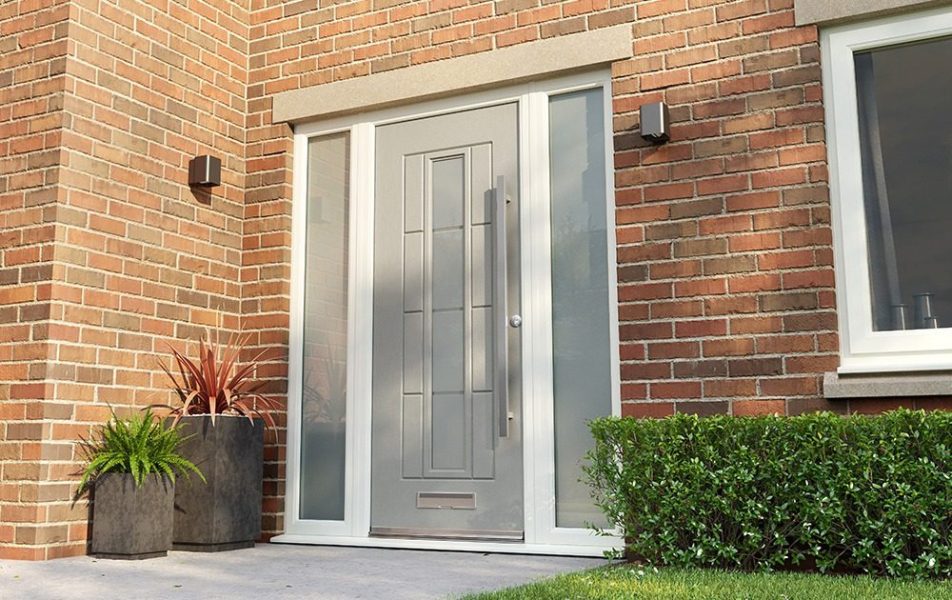There is no denying that composite doors are a great investment for anyone who is wanting to update their front or back door. Even though there are some drawbacks to composite doors, it is difficult to outweigh the long list of benefits composite doors have to offer. In this article, we’ll be exploring both the pros and cons of composite doors to give homeowners the full picture of this type of door before making the decision to purchase one.
Pros of composite doors
There are many advantages to adding a composite door to your property, below we have listed some of the key features and benefits of these doors.
Composite doors vs wooden doors
The key advantage of having a composite door in comparison to a wooden door is the low maintenance and long life span they can offer. Composite doors can last for many years and don’t need any serious work like repainting or big repairs.
Whilst wooden doors can start to look dated over time (paint starting to chip etc) are prone to rotting, and cannot handle strong weather conditions, composite doors are the opposite. For a slightly higher price, you will get considerably more features and benefits for your money with composite doors than you would with wooden or other types of doors.
The best door for security
It is clear that thanks to their design of combining multiple materials they are one of the most secure and safest doors to choose from. The reinforced materials and the general strength and quality of the door have led to it becoming one of the best on the market in terms of security. That’s not to mention them having the latest and most advanced locking mechanisms inside the doors. This ensures it is well-equipped in every aspect to stop intruders and deter potential thieves.
Style and durability
Composite doors can come in a wide range of different colours and designs, meaning the homeowner can fully customise their door to their own specification and preferences, in keeping with the rest of the home. Whilst with some doors you might have to compromise on factors like durability and sustainability if you want better design and style or vice versa, with composite doors you never have to compromise. It will completely maintain its strength, longevity, and energy efficiency benefits whilst incorporating all the design elements you want, no matter how specific or unique they are.

Cons of composite doors
With so many benefits to composite doors, it might seem too good to be true. However, to put things into perspective no product is perfect, and every door material will have some disadvantages that could be improved upon. We’re going to look at the two biggest disadvantages that might deter homeowners from choosing composite doors for their homes.
Composite door price
One of the main downsides of composite doors is the price. When shopping around for a new door, the price tag will likely be a key consideration for you and could be the main reason why you choose one type of door over another.
We cannot provide an exact figure at this time because there are several factors that can influence the price and a person’s budget, it is estimated that a number of homeowners will be planning to spend in the region of £1,000 on their new door, if not more. Composite doors in comparison to uPVC are not the cheapest on the market. So, if you do have a strict budget in mind a uPVC door may be a better fit for your needs.
This might seem like a disadvantage on the surface, the reasoning behind the price is simply that you will get what you pay for. With the extensive list of high-quality benefits, you get with composite doors, there needs to be a cost to match. That means you will get value for money on your new, secure door with customisable designs and features. In many ways, it is unrivalled by any other door material.
Composite doors creaking
The other main disadvantage to composite doors is how they crack and creak during hot weather. On scorching summer days when the sun has been beating down on your house all day, warming up your doors and windows, later in the evening or early in the morning, you might hear your door cracking or creaking.
Due to the above-mentioned security benefits, you will have peace of mind that no one can break in. So don’t worry! The noise is simply the plastics inside the door expanding and contracting because of the heat. As the door warms up, you might find that it is a bit more difficult to close than normal (this is mostly because the door has become too big for the frame) and in turn, you may hear a creaking noise.
Also, when the door cools down, it is going back to its normal size, that is when you could hear the noises at night (when the air has gone cold). This problem is more of a mild annoyance rather than a serious problem, and it is something that can be fixed. However, it is a factor of composite doors that has been discussed within the double glazing community so it was worth highlighting so potential buyers are aware of it.

Are composite doors worth it?
Ultimately, it will come down to you to decide the answer to this question. Having a budget in mind that you want to stick to as well as a list of requirements for your front or back door that are important to you is a good place to start, and whilst composite doors will likely tick a lot of boxes for you, the deciding factor will be your personal preference.
We hope we have answered some or all of the questions you might have had when considering whether or not to purchase a composite door. At Clydebuilt, we certainly think that if you have the money and a specific style in mind, a composite door is a great investment in any property and the positives outweigh the negatives significantly.
 " alt="What Are the Pros and Cons of Composite Doors?">
" alt="What Are the Pros and Cons of Composite Doors?">